+ How Igbobi nurses encourage noise pollution in the name of worship
‘Every morning devotion, Christian faithfuls would chant, sing and clap loudly while patients would still be fast asleep’
Anxiety gripped me shortly after it became glaring that I had to go under the knife the second time to save my leg from being amputated. Since the day I received the sad news, sleep hardly came, even when I tried.
The confirmation came barely a year after the first failed surgery.
On Wednesday, February 4, 2015, I was hit by a huge truck at Oregun/Ojota road, Lagos, and I sustained an oblique fracture on my right thigh and a dislocation on my left ankle as a result.
The surgery was successfully carried out at the Trauma and Burns Centre of the Lagos State University Teaching Hospital, (LASUTH) Annex, Gbagada. However, the unfortunate occurred. There was either “no” or “delayed” union between the bones, which prevented healing for more than a year. This was caused by an infection.
“Are you afraid of going under the knife again?” my doctor (name withheld) asked me. “That is the way out, because the implant has been infected, and it might have infected the bone too. We need to act fast to prevent it from spreading to other parts”, he explained.
Of course, I was really scared! Thinking about what I had gone through in the last one year was pure hell. I thought about the persistent pains and the agonies of staying indoors for so long as if I was in a prison, among other unpalatable experiences.
The date of the second surgery was fixed for April 26, 2016 at the National Orthopaedic Hospital, Igbobi, Lagos. Without doubt, the hospital is one of the finest but costly specialised trauma centres in Nigeria. Everything about the hospital is money. At the time, the dollar scarcity had affected the cost of every item needed for the operation, including the needle.
I was really depressed but I had no choice. Through the support of family and friends, I was able to raise over N700, 000 for the second surgery, after spending more than a million naira over the first one.
“Young man, the implant in your affected leg will be replaced with external fixation”, said the Consultant in charge (name withheld), noting that, “the leg has been infected. And it is possible you have short leg after the surgery, depending on the level the infection has penetrated into your leg.”
My mood suddenly changed following this development. I had been carrying the implant for more than a year, but I did not understand what the doctor meant by “external fixation”. I queried my doctor-friend, Dr AbdulHamid Salahudeen, who had been rendering selfless services to me; “what does it mean?”
Obviously, he didn’t know how better to explain it to me. He looked around, saw some patients that came for the clinic with the kind of external fixation to be used for me, and then said; “Ah-ah, that’s it!” “Ah! Is this the external fixation? God knows, I do not like it!” I exclaimed in a loud voice. But did I have a choice? Of course, No!
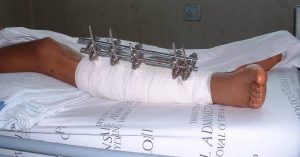
The external fixation actually looks like a TV antenna. That’s the best way to describe it as a layman. It is drilled into the bone. It looks horrible and scary – but in reality it is an externally adjusted device used to ensure the bones remain in an optimal position during the healing process.
Everything seemed new to me, as if I had not experienced that kind of surgery before. This may be due to the fact that I was unconscious during the first operation, hence I did not know what went down.
I did not even know that I had to sign a consent form, since it was done on my behalf during the initial procedure. Now, I had to accept whatever option offered as a prerequisite for me to walk again!
While waiting for the D-Day, so many thoughts came to my mind. I remembered how some concerned family and friends suggested alternative medicines as solutions to my predicament. They said to me, “use this, drink that” and offered me all sorts of concoctions, but I was able to overcome their advances because of my steadfastness in Allah, who says in His Noble Book that, “No affliction ever comes but with Allah’s permission.” Qur’an 64:11
The Story Of Prophet Ayyub Inspired Me
At that moment, the story of Prophet Ayyub, otherwise known as Job in the Bible, came to mind. Despite being an honourable Prophet and one of the best creatures of Allah, he was tried by Allah with illness.
Prophet Ayyub, once the happiest, healthiest and richest lost all his children and wealth, including hundreds of sheep, slaves and vast lands until he was left with no possessions. He became so poor and sick to the extent that he was reduced to mere skin and bone. He suffered severe pain, after which he was isolated by his people, except his wife.
According to Ibn Kathir in his book, “Stories of the Prophet”, the Shaytaan (Devil) appeared before Prophet Ayyub’s wife in the form of a man. He asked her, “Where is your husband?” She pointed at an almost lifeless form crumpled on the bed and said, “There he is, suspended between life and death.”
The deceitful Shaytaan reminded her of the days when Ayyub had good health, wealth and children. The painful memory of years of hardship suddenly overcame her, and she burst into tears. She said to her husband, Ayyub: “How long are you going to bear this torture from your Lord? Are we to remain without wealth, children or friends forever? Why don’t you call upon Allah to remove this suffering?”
Ayyub (May Allah be pleased with him) sighed and in a soft voice replied his wife: “The Shaytaan must have whispered to you and made you dissatisfied. Tell me, how long did I enjoy good health and riches?” She replied: For eighty (80) years. Then, Ayyub asked: “For long have I been suffering like this?” She said: “For seven (7) years.”
Ayyub then told her: “In that case, I am ashamed to call on my Lord to remove the hardship, for I have not suffered longer than the years of good health and plenty riches. It seems your faith has weakened and you are dissatisfied with the fate of Allah. If I ever regain health, I swear I will punish you with a hundred strokes.
“From this day onward, I forbid myself to eat or drink anything from your hand. Leave me alone and let my Lord do with me as He pleases”, Ayyub said. The wife cried bitterly and with a heavy heart, she had no choice but to leave him and seek shelter elsewhere.
In this helpless state, Ayyub turned to Allah, not to complain but to seek His mercy. Allah in His infinite mercy answered his call. “We removed the distress that was with him, and We restored his family to him (that he had lost), and the like thereof with them – as a mercy from Ourselves and a Reminder for all who worship Us.” Q. 21:83-84
How Allah Answered My Prayers
Unlike Prophet Ayyub, my friends and families, particularly my wife – with our marriage being just a year at the time of the accident – all stood by me. They never left me for once and I was very optimistic and hopeful, because “when I fall ill, He (Allah) is the one who cures me” (Qur’an 26: 80), albeit through the efforts of the medical experts.
Meanwhile, let me use this avenue to say that Allah does not forbid believers from using herbal or orthodox medicines, as long as their ingredients are not made from materials that are Haram – that which Allah has made unlawful. “Verily, Allah does not make your cure in what He has prohibited to you”, said our beloved Prophet Muhammad (peace be upon him). As for spiritual illnesses, there are solutions for such in the Noble Qur’an. Hence, it does not befit a believer to seek favour from Allah’s creatures, be they humans or jinns, because Allah says: “O mankind, there has to come to you instruction from your Lord and healing for what is in the breasts and guidance and mercy for the believers.” Qur’an 10:57
On April 26, 2016, I went under the knife the second time and the surgery – which lasted for 3 hours – was successful, but something strange occurred!
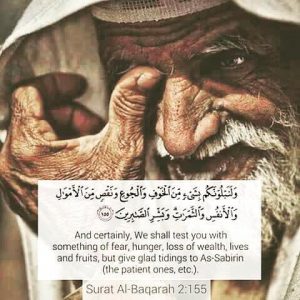
There was no “external fixation” on the leg! You remember that scary “thing” that looked like a TV antenna, right? “No external fixation? What could have happened?” I wondered. I was not even sure if the infected implant was still inside the leg, or it had been finally removed. Nobody was there to explain what transpired, not even the doctors.
I was transported back to the ward. The next day, one of the surgeons (name withheld) came to explain what happened to me. He said; “The x-ray you brought did not show the leg was healed, but when we opened it, we discovered it was almost healed. Hence, it didn’t make any sense to start breaking it and adding an external fixation again. It would be like starting all over again… So what we did was to remove the infected implant, wash all the pus, and cover it back.”
It was really a miracle if you ask me, one of the signs that prayers are answered by Allah the Almighty. Imagine the x-ray showing “no union”, but there was indeed a healing process going on and the infection did not affect the bone! It was only on the soft tissue. Indeed, Allah is great!
But then, it was not over. I was admitted for another three weeks. “Mr Journalist, you would have to stay with us for 3 weeks, after which we can then discharge you,” the doctor said and walked away.
Living in Ward R
…Living in Ward R (lower class ward) for 3 weeks was a once in a life time experience for me. Unlike the Lasuth’s private ward that cost N3,500 per night (as at February, 2015 during my first surgery), I couldn’t afford that of Igbobi, which went for N10, 000 per night (as at April, 2016).
Did you just say N10,000 per night? One may ask.
Yes. That’s it! N10, 000 per night, about N210, 000 for three weeks.
Let me use this avenue to say that N10, 000 (now, I learnt it goes for N14, 000) is just too much for a patient accommodation in a government hospital. It’s just too ridiculous!
Asides from the television that’s not even useful for a patient who is going through tedious pains, what’s there to benefit from? Okay, private toilet and Air conditioner, right? I can get more than that at a nearby hotel with less than N4, 000. By the way, this is excluding feeding.
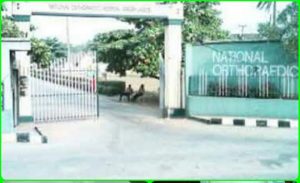
Eventually, I found myself in the midst of over 20 patients in one of the most troublesome general wards.
At first, I thought I wouldn’t cope seeing the sorry state of the N1,500 per night ward, and the kind of treatments the patients received from the nurses that were never enough.
The nurses were committed to their job but they easily got frustrated and usually transferred aggression to patients – and of course, they probably couldn’t be blamed. Imagine three nurses assigned to the well-being of 20 adults. They often lamented and blamed the government for not recruiting more nurses.The appalling thing I also noticed is the lack of male nurses. I was not really comfortable with female nurses giving male patients bed bath. The Federal Government really needs to do more for the health sector.
Back to my story, I later adapted to the new lifestyle where I saw patients with different gory sights. Some already had their hands or legs amputated; some were about to be transported to the theatre for the first, second or third surgery; some were eager to be discharged due to unpleasant treatments and odours while others had overstayed because there was nobody to pay their discharge fee.
I belonged to the category of patients who wanted to leave the hospital at all cost. Paying for the service wasn’t my major concern, my headache was that I didn’t get the desired services expected from a national hospital of that calibre.
For instance, there was no bulb in the ward’s toilet for close to three weeks. I almost fell out of my crutches during one of the nights while trying to use the toilet, with my rechargeable lamp because everywhere was dark! The management failed to act, perhaps because no casualty was yet to be recorded.
Igbobi’s food was like a “prison” meal, yet you pay N1000 to be served daily as at April, 2016. And it was compulsory. The kind of food that makes you want to vomit. Tasteless, pepperless, and whitish soup; with half-done rice and watery food. The ward often became rowdy because of the patients’ incessant protests over food.
I suddenly became the spokesman for the other patients. My journalism background won’t let them rest. Many of my colleagues at work often call me a fearless reporter, simply because I detest cheating, unfairness and anti-people policies.
I challenged the culinary department, owned by a private company (name withheld), but I wasn’t sure if they adjusted for good as promised, since I was discharged afterwards.
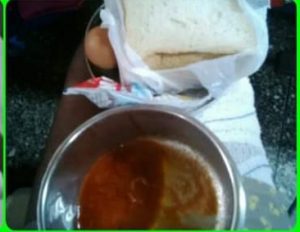
There was a day when a particular bad odour enveloped the whole ward. It was a smelly wound and the situation was pathetic as the man’s wife trying to suppress the odour with air freshener.
The nurses were used to such odour but what about the innocent patients who were covering their noses with clothes, unable to express their feelings openly, partly because of the feeling of pity, empathy and comradeship.
At that moment, I overheard Moses (not real name) a patient beside me, telling a nurse to isolate the man.
The nurse replied: ‘Come on! Don’t embarrass the poor man. What if you’re in his condition? What if the wife heard what you just said? How do you want her to feel? In as much as you’re not in a private ward, you must adapt to and bear with whatever you see,’ the nurse appealed to him in her Igbo accent.
Moses worked with a plastic manufacturing company. He accidentally lost one of his upper limbs (right hand), while operating a machine.
Luckily for him, he got so much love, attention and care from his boss, a white man, who didn’t only foot the bill, but also promised to give him N1.5 million to start a business.
Paradoxically, – I didn’t get a dime from the company I had served passionately and meritoriously. It’s owned by a Nigerian.
I narrated to him how unlucky I was. He didn’t visit me for the past one year, let alone pay me any compensation. If not for God, and my family, life would have been miserable for me.
‘But can’t you sue them?’, Moses asked with pity.
‘Sue ke? No no no. I don’t want to do that.
I leave him to God, but seriously, it is sad that this is happening, as much as I was dedicated to the job. I didn’t see them at the time I needed them most except for some few colleagues who contributed money for me. It was sad. I just hope our union (journalism body) would one day rise against media houses who maltreat their staffers’, my prayer.
Nonetheless, it is very important to state that I had a wonderful moment with my co-patients. Despite the fact that we had different challenges, we still spent nice time together, sharing different stories that brought each of us to the orthopedic hospital.
My case was the least pathetic compared to what I witnessed and heard directly from co-patients.
For instance, Babajide (not real name) went in search of fuel during the 2016 nationwide fuel scarcity when some men in uniform stormed the petrol station. In a bid to coordinate the already frustrated Nigerians who couldn’t comport themselves peaceful on the queue, the uniform men descended on everyone in sigh beating them with big sticks and belts.
Babajide was unlucky. He was badly crushed in his lower limb by a moving truck as he tried to rush for safety to evade being manhandled by the uniform men who were reportedly invited by the management of the fuel station. He had so many bruises all over his body.
His health condition was so critical that he had to go under the knife severally to safe his leg from being amputated. Surgical drain tube was passed into the affected leg to remove pus, blood and other dangerous fluids from the wound.
The bedridden man who did series of plastic surgery believed that what happened to him was not ordinary. He said it was a spiritual attack from his enemies who wanted him dead.
Babajide is a Muslim, but not a conscious one. For the fear of another spiritual attack, he would join fellow Christian patients during the morning devotion since he believes, “Muslims and Christians worship the same God”.
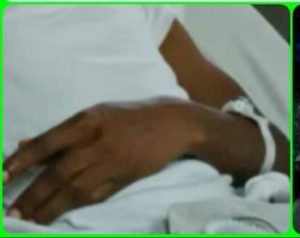
Every morning devotion, Christian faithful would chant, sing and clap heavily. Quite unfortunately, this usually happen while other co-patients would still be fast asleep. Sometimes, it is even done with the aid of megaphone.
And of course, typical Nigerians, everyone grumbled but none dared complained aloud – particularly non-Christians. They grudgingly endured the disturbance, either for the fear of been accused of intolerance or the thought of being tagged an unbeliever.
Without any fear of contradiction or being misunderstood, were it to be the other way or should Muslims engage in such activity, it would have attracted wide condemnations and the media world would have made nonsense of the prayer service.
The point is, such mode of prayer isn’t ideal in an hospital environment where silence is golden and sacrosanct for the patients’ well-being. After all, the Bible says ‘God hears our silent prayers’. He’s definitely not deaf.
Imagine a patient who had been experiencing sleepless nights – but who incidentally or accidentally finds sleep in the early hours of the day (at dawn), only for him to be disallowed to enjoy the largely expensive sleep just because of noise pollution from his co-patients.
More pathetic is the case of the nurses who, as a result of their training were expected to be better informed. But they even joined rather than cautioned them in the unwholesome act! Yes, unwholesome because Qur’an (2:186) says Allah is very close and He answers the prayer of every supplicant whenever he calls on Him.
Prophet Muhammad (peace be upon him) warned (Muslims) severally, ‘do not inconvenient your neighbours’, even when praying.
Interestingly, of the devotees once observed: Look at Alfa (pointing at me), I always see him pray on his ‘sick’ bed quietly and you won’t even notice, except you observe keenly.
Where then is our much flaunted religious tolerance? Even if I was the only Muslim in the ward (which is not the case), shouldn’t they respect my belief and give regards to my right to privacy?
Believe you me, I refused to correct them to avoid being tagged ‘Anti-Christ’ so it won’t affect our good relationship.
It is high time the Lagos State Environmental Protection Agency (LASEPA) extended its campaign against noise pollution to the Igbobi Orthopaedic Hospital because there are strong indications that disturbances in the name of worship still persists in many of the general wards till date.
There were so many other events and lessons I would have loved to narrate but time won’t permit me to do justice to all angles to Igbobi experience. Watch out for the complete parts. May Allah spare our lives till and beyond then. Allahumo ameen.
By: Rasheed Abubakar

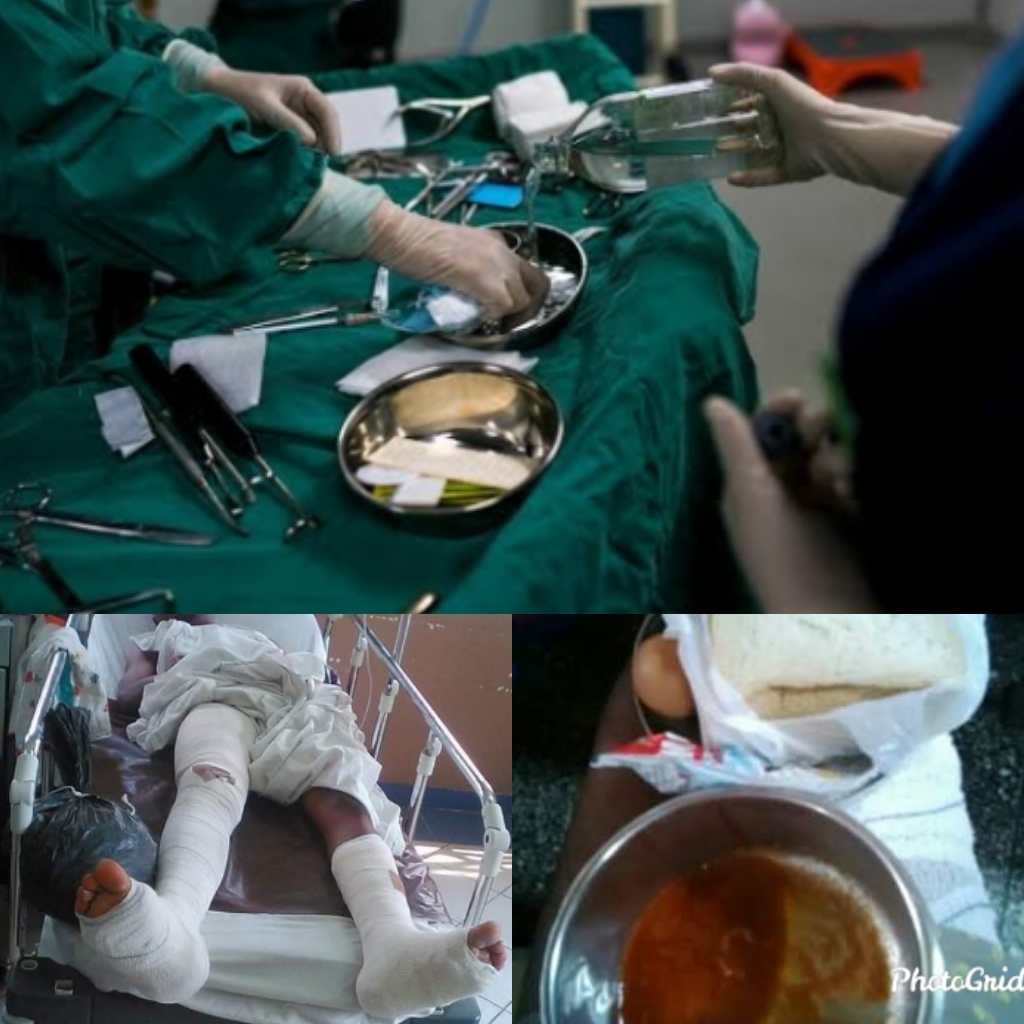
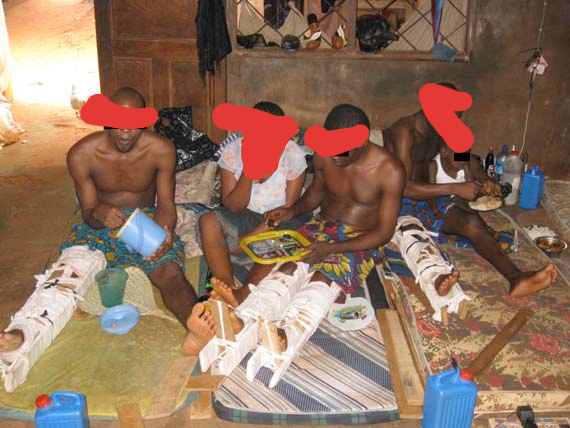

Igbobi of 2016 is different from Igbobi of today.
You may ask to take a visit there to appreciate this fact
Igbobi of 2016 is different from Igbobi of today.
You may need to take a visit there to appreciate this fact
Igbobi of 2016 is different from Igbobi of today.
You may need to take a visit there to appreciate this fact
As for the early morning “devotion”, please petition their management. You may be the Messiah for others who do not like the experience but can’t voice out.
I think something should be done on the issue of noise pollution in all health centers,it is not only in igbobi.
I guess a letter should be written to commissioner for health (those concerned).
Noise pollution is causing a lot of hazards.